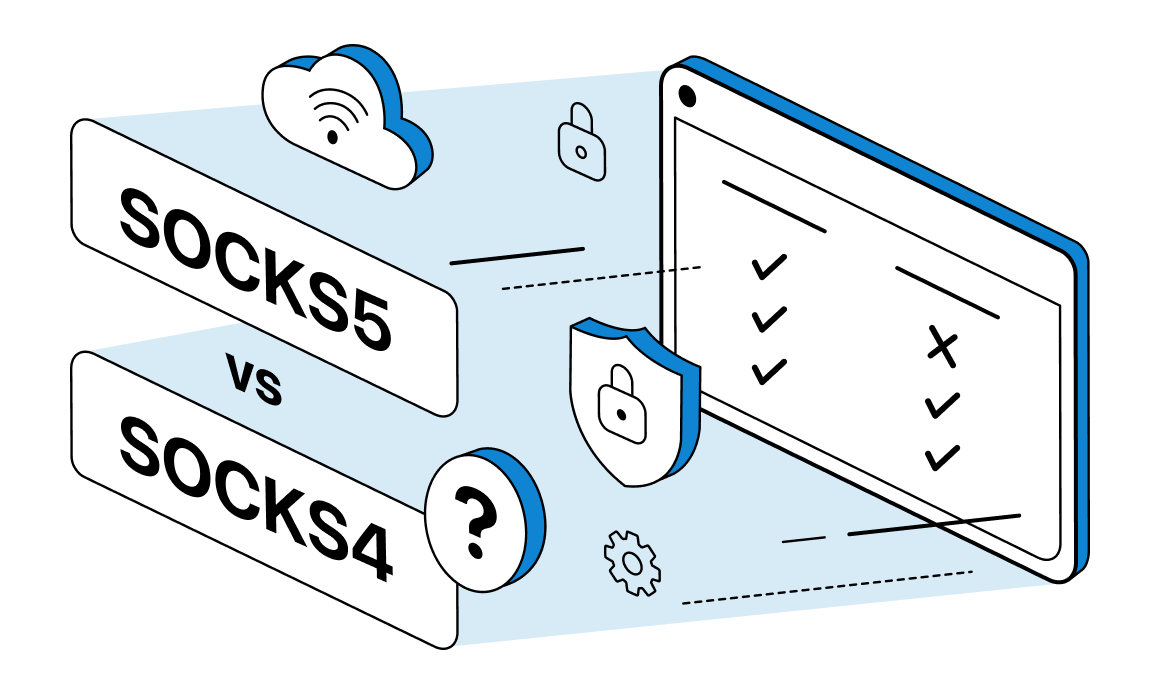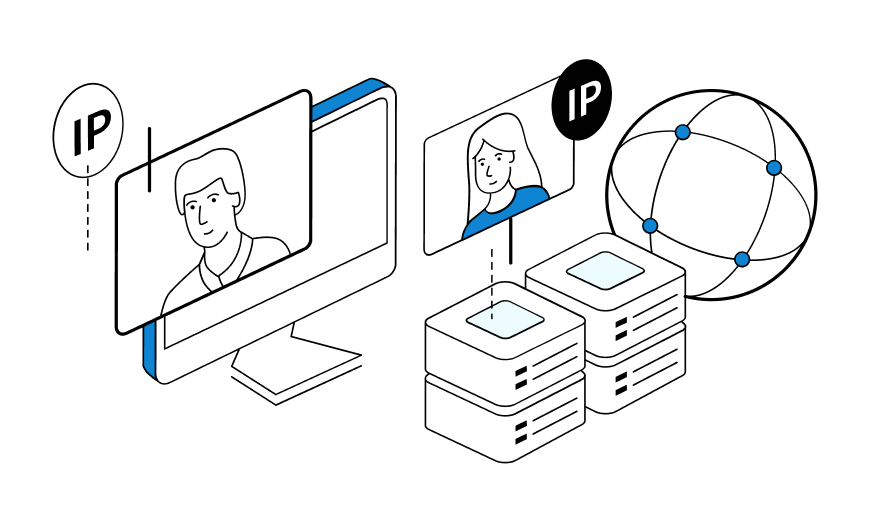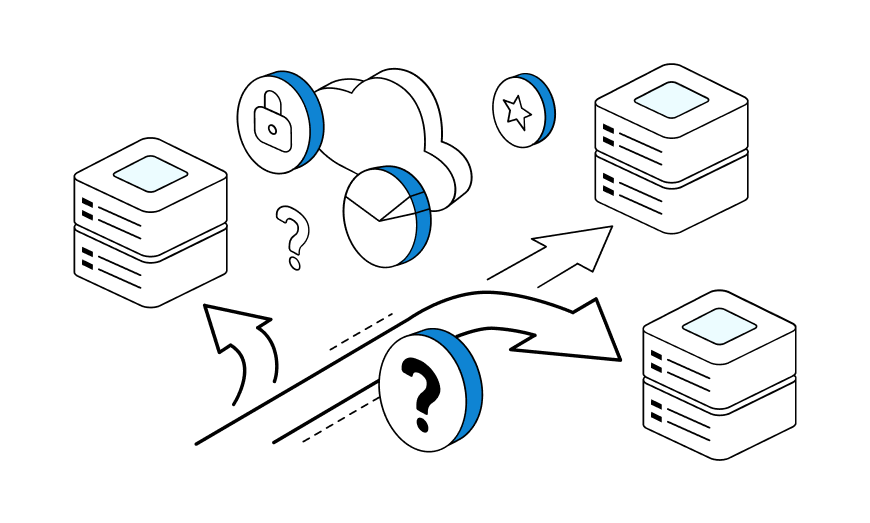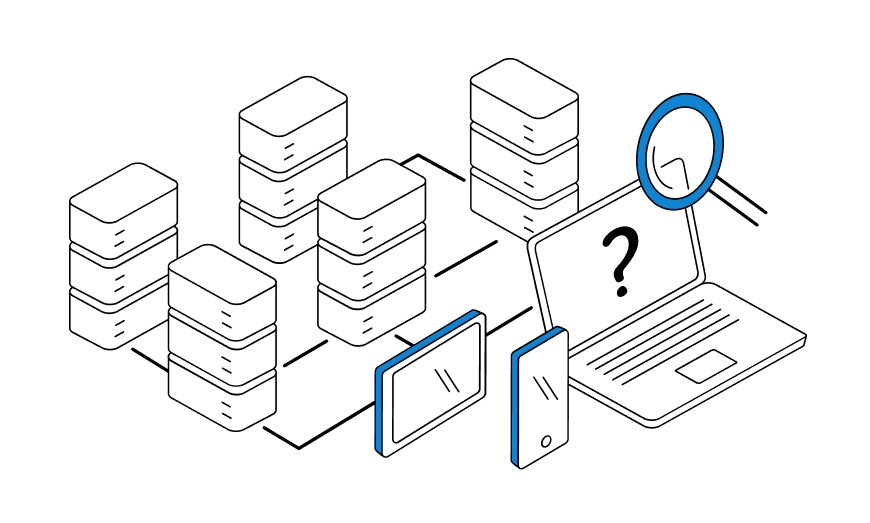When it’s time to choose private proxies for your business operation based on the protocol, you should not judge the servers by such binary categories as “good” or “bad”, “cheap” or “expensive”. The proxies may rather be “more” or “less” suitable for your particular needs, true. And that involves a whole variety of factors.
Think of a car analogy. You may not need to buy a genuine 4×4 truck to be able to get around your city, for daily work commutes or driving to a supermarket on weekends. A standard SUV may be just fine for that. And a sports car will be justifiable only if you need ultra-high speeds on the roads that resemble autobahns.
In the world of proxying, the same is true about protocols. Here, we will not be able to say that, for instance, Socks5 proxies are “better” or “worse” than HTTP(s) proxy servers. This truly depends on the way you use your IPs.
For high speed use cases (involving TCP and UDP traffic, more on it later) you will need Socks IPs, and for cases when you have to be careful about the incoming traffic, you will need HTTP proxies. Only with them will you be able to detect and filter out information right from the incoming traffic of your proxy. So, for HTTP(s), SMTP or FTP traffic your best choice remains an HTTP(s) proxy. Also, proxy ports 1080 and 1801 are normally reserved solely for Socks proxy servers.
Earlier we have covered the difference between Socks5 vs HTTP proxies and now it’s time to go deeper into the technicalities of the Socks protocol itself, and compare Socks5 to its predecessor – Socks4.
So, what is the difference between Socks4 and Socks5 proxies? In this article we will cover the main features of both types of proxies, talk about the technical aspects of the servers as they relate to user requirements with the ultimate goal to make it easier for you to decide what proxies to go with for your mission.
What is a SOCKS5 Proxy?
Simply put a Socks5 proxy is a proxy server operating on the Socks5 (Socket Secure) Internet protocol. It supports both TCP (Transmission Control Protocol) and UDP (User Datagram Protocol) connections and appears to be a good choice for those who need additional security. It provides strict authentication methods and supports IPv6 domain addresses.
How does the SOCKS5 Work?
A Socks5 proxy establishes a connection between the client and a web server using the TCP protocol. UDP is also supported (unlike with Socks4) but it is used only for sending packages and not for initiating the connection in the first place. This makes Socks5 proxies even faster versus standard Socks4 ones. Once the handshaking is complete, the data is free for transmission between the client and the destination.
What is also important to remember is that with a Socks5 proxy we have a special secure tunnel established between the client and the server. It is called SSH (Secure Shell) encrypted tunneling and it adds to the security of the connection.
Also, Socks5 proxies can transfer any kind of traffic, making this type of IPs super versatile. If you want to handle large amounts of data transfer on peer-to-peer networks or streaming sites, you should definitely consider this type of protocol for your proxies.
Unlike HTTP proxies, Socks proxies do not access the data enroute from the user to the proxy server. The packets are transferred as is. The function of the proxy here is to send and receive data: it is not interpreted or filtered in any way. On the other hand, this can be seen as the weak point of Socks proxies, since there is a risk of letting in some malicious or unsanctioned traffic as well.
SOCKS5 Proxy: Pros & Cons
In this section we will consider some advantages and disadvantages of Socks5 proxies from the perspective of security, compatibility and performance. So, when you decide to buy a Socks5 proxy, you could take these factors into account.
| PROs | CONs |
| Protocol Support. Socks5 supports both TCP and UDP protocols, which makes it a much more versatile proxy for a wide variety of applications. High Performance. Socks5 proxy can provide a very high speed connection with fewer errors, again, due to UDP protocol support.Better Security. This is possible with the required authentication of this type of proxies if we compare Socks4 vs Socks5. | No encryption. Although the SSH tunnel provides adequate security between the server and the client, you have no encryption between the proxy and the destination. You should consider using VPN if that becomes a concern. |
What is SOCKS4 Proxy?
A Socks4 proxy is a proxy operating on Socks4 (Socket Secure) protocol. It is the previous version of Socks running solely on TCP Internet protocol.
How does the SOCKS4 work?
From the data transmission perspective a Socks4 proxy works pretty much in the same way as Socks5 server. And, if we compare Socks4 vs Socks5 proxy, the key difference would be that Socks4 is TCP only, it does not support UDP protocol, authentication and SSH tunneling.
SOCKS4 Proxy: Pros & Cons
Now, taking into account all the information on Socks4 vs Socks5 versions, let’s try to sum up the advantages and disadvantages of Socks4 proxies in one table.
| PROs | CONs |
| TCP Protocol Support. Socks4 demonstrates good performance working solely on clean TCP protocol. | No UDP Protocol Support. Unlike Socks5, Socks4 proxies support only TCP protocol, which makes it a less qualified alternative for applications involving huge traffic (like video and audio streaming) that require UDP support. No SSH encryption. Socks4 proxies do not provide the SSH tunneling method for data encryption between the client and the server. No authentication. And, if we take Socks4 vs Socks5 proxy servers, with Socks4 we do not have authentication methods for improved security. |
SOCKS5 vs SOCKS4: Detailed Comparison
And now it’s time to put Socks4 vs Socks5 proxy protocols together for you to clearly see the advantages of evolution in action. In the table below we compared the main parameters of both types of proxy servers.
| Parameter | SOCKS4 | SOCKS5 |
| TCP support | Yes | Yes |
| UDP support | No | Yes |
| Authentication | No | Yes |
| SSH tunneling | No | Yes |
| DNS query support | No | Yes |
TCP support
Both Socks4 and Socks5 support TCP (Transmission Control Protocol) for communication. This protocol is used to transfer the data between the user and the destination server.
UDP support
While choosing between Socks4 vs Socks5 UDP (User Datagram Protocol) protocol support can be a critical factor. Since only Socks5 supports the fast UDP connection required for high-speed transfer of video and audio streaming traffic.
Authentication
Out of the two only Socks5 proxies provide authentication methods of various types. Here you could have null, username/password or more advanced GSS-API authentication.
SSH tunneling
In order to increase the level of Socks security, the proxies engage special SSH (Secure Shell) encrypted tunneling for data transmission between the client and the proxy server.
DNS query support
Socks5 supports DNS queries where Socks4 lacks this feature. In other words, Socks5 proxy can act as a DNS (Domain Name System) client to issue DNS requests.
Choosing Between a SOCKS4 vs SOCKS5
If you want to have a Socks4 or Socks5 proxy at your disposal (inside your SaaS tool or scraper), I think by now you have a fair amount of insights to support your choice. Here, we have highlighted the main advantages of Socks5 proxies over Socks4 servers, so that you could make a more educated decision. To sum up, Socks5 is a more advanced and versatile solution with UDP protocol support (vital for some high-bandwidth applications, like gaming, video streaming and more). But if you still have questions on Socks4 vs Socks5 proxies or what types of Socks proxies to choose for your particular use case, we are just a click away. Let us know in the chat box below, and we will guide you through this process.
Consider Buying SOCKS Proxies by Privateproxy
Over the time of our presence in the proxy industry, we have become a proxy provider with a vast knowledge base of proxy-related use cases including all types of servers (HTTP(s), Socks4 and Socks5 proxies). And, the good news is that we are ready to share the insights of the best practices in proxy application with you – our customers.
So, the minute you want to go ahead and purchase some Socks 4 or 5 proxies or a set of HTTP proxies, there is a high chance that we already have a similar use case and are ready to advise you on the best proxy solution.
How does it go? Say, you want to have a reliable pool of Socks5 proxies for a video streaming access, to be used as gaming proxy servers or for a web scraping project. It can be geo-specific as well. No need for a second thought here! Just approach our account managers, who are ready to help you round-the-clock, with your request. Once you become our customer, you will certainly enjoy the personal lifetime tech support that we offer for resolving all possible concerns that you might have using our IPs. We will help you set up and deploy our proxy servers in no time. The same goes for resolving all sorts of compatibility issues.
So, let us take care of the proxies for you, while you enjoy your online endeavors!
Frequently Asked Questions
Please read our Documentation if you have questions that are not listed below.
-
What is a SOCKS5?
Socks5 is a proxy protocol that allows using both TCP and UDP protocols for data transfer. It features SSH tunneling for data encryption and enables a range of authentication methods for proxies (null, username/password based and GSS API).
-
What is the difference between Socks4 and Socks5?
Unlike Socks4 that works only on TCP, Socks5 has TCP and UDP protocol support, it uses SSH tunneling for data encryption between the client and the server and als supports authentication methods of the proxies for better security.
-
What is a SOCKS4?
Socks4 is the predecessor of Socks5. It is based solely on the use of TCP protocol for data transfer. Proxies based on this protocol are used for high-speed online missions involving peer-to-peer networks and scraping.
-
What to choose: SOCKS5 or SOCKS4?
If the price is not an issue, and you have special needs for high-performing proxies (like in the event of heavy-duty scraping or video streaming), it is better to use Socks5 as a more advanced version of Socks proxy protocol. In other cases, it would be sufficient to use Socks4 proxies. If in doubt, please ask us for advice.
Top 5 posts








Browser extensions... They can be super helpful when you have some repetitive tasks that beg for automation. In the world of proxies such a handy assistant is FoxyProxy – a cross-browser extension that helps you set up and manage your proxies on as needed basis right from the taskbar.